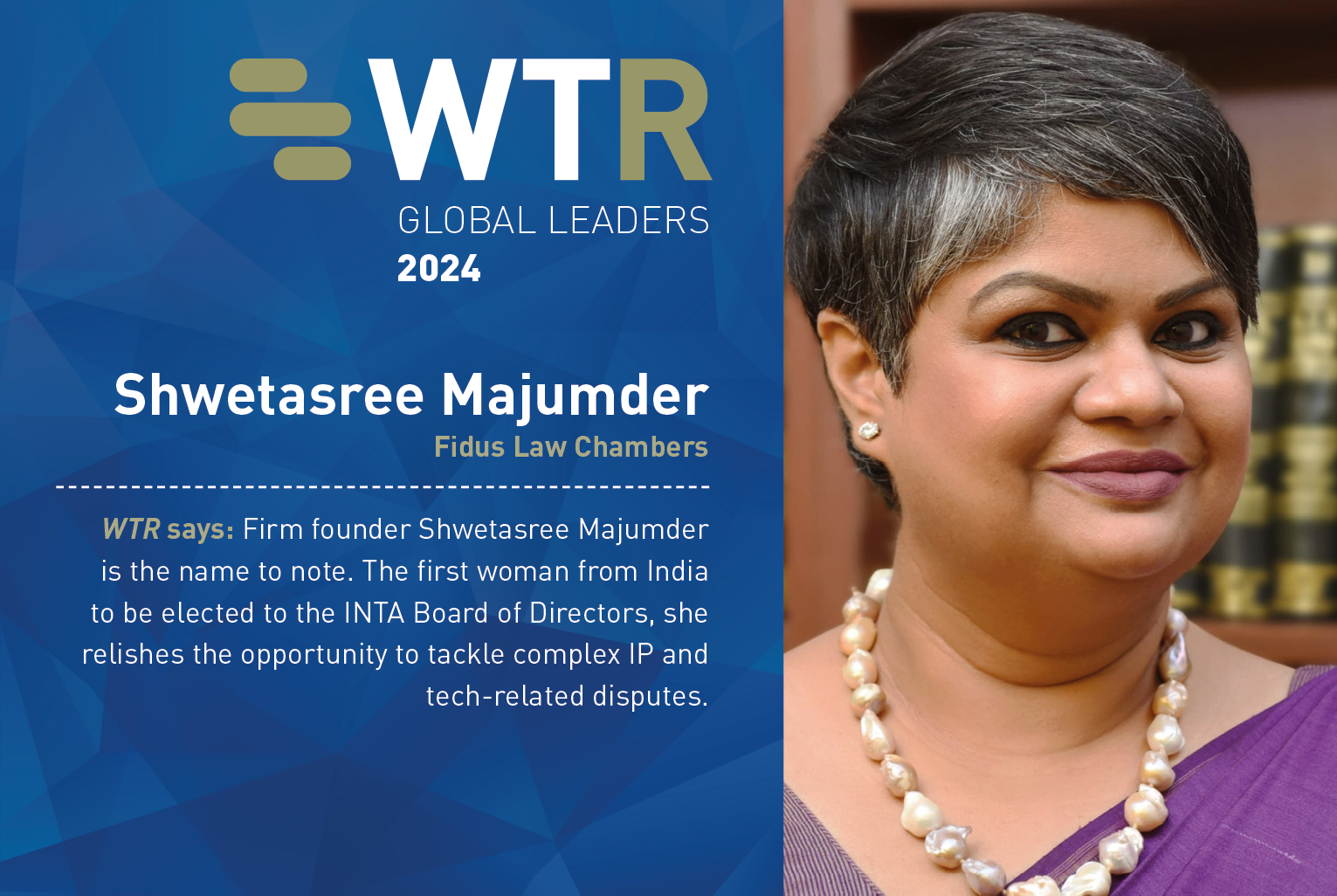Shwetasree Majumder
What inspired you to pursue a career in intellectual property, and what advice would you give to others considering a similar path?
I participated in an IP law moot in my fourth year of law school and loved it! The issues were complex and cutting edge, and I loved the overlap with science. I knew then that intellectual property was the field in which I wanted to specialise.
It is a demanding subject, and for anyone aiming to be an IP lawyer, I would say stay abreast of the latest global developments in the subject – what the courts are saying and what businesses are doing. This helps you to remain agile and commercially savvy, which are both critical skills for being an effective advisor.
As managing partner, what does effective and inspiring leadership look like to you?
To be an effective leader, one must create an inspiring and non-toxic safe space at work where we respect every colleague’s views and collaborate to achieve our goals. To do this, our organisation need to be truly diverse; it must be a safe space, not just for women but for all minority groups as well.
We realised some time ago that we were guilty of rewarding privilege. Our ads required applicants to be from top-tier law schools with a certain grade point average and co-curricular credentials. This automatically excluded a large number of minority candidates who did not have access to top-tier law schools. So we overhauled our hiring policies to be able to welcome a more diverse pool of talent to our firm. That was really a game changer!
We also need to focus on whether there is a broken rung in the ladder when it comes to progression in our firm. Our responsibility cannot end with simply hiring a diverse talent pool at the entry level, or even just ensuring equal pay. We must focus on ensuring that minorities have the same opportunities and paths to progress as they move up the career ladder.
Last year, you lamented that Indian law firms were not looking seriously enough at DEI issues. Twelve months on, has the dial moved on this, and what could the industry be doing better?
I don’t believe that the dial has moved on this. The absence of policies has been covered up by pinkwashing. I recently saw a prominent IP firm advertise itself as “women-led” for International Women’s Day – its managing partner is male, as are four out of five people in its senior leadership!
An Indian IP attorney’s LinkedIn post also drew my attention – a top-tier IP firm had fired her during her maternity leave! In many countries it is unthinkable to do something like this. In India, law firms get away with it because there is no accountability.
Clients need to insist on transparent disclosure of DEI policies and initiatives and have them independently audited when a firm pitches for work to push firms to do better.
As a prolific litigator, what are the most critical characteristics of a winning strategy before the courts?
While there is no substitute for hard work and being recognised by judges as an authority in IP law, one should be able to read the room. Knowing which arguments are appealing to the judge and accordingly steering your oral presentation is critical. It is crucial that you are seen as someone who is willing to tailor a solution that serves your client’s interest but that is also just.
You were recently part of the organising committee for the Judicial Colloquium on IP Rights organised by the USPTO, the US DOJ and the Delhi High Court, which saw judges from six countries speak on a range of cutting-edge IP issues. What are your key takeaways from this event?
All of the judges acknowledged that current laws are inadequate to protect and regulate AI inventions, unless the definition of ‘inventor’ or ‘creator’ has been expanded from natural to juristic persons. They addressed the need for recognising newer types of branding under trademark laws and feel that the only reason why IP jurisprudence is able to match strides with rapid technological developments in a borderless world is because creative solutions are being crafted in courtrooms. They underscored the importance of respecting the orders of competent courts in the online ecosystem so that a rogue actor is unable to sidestep court orders by simply changing location.
Shwetasree Majumder
Managing Partner
Shwetasree Majumder is the managing partner of award-winning Indian IP boutique Fidus Law Chambers. She regularly appears before various courts in India and has served as counsel in more than 500 IP cases. Ms. Majumder is a WIPO panelist and has also served on INTA’s board of directors. WIPR names her as one of the 50 most influential women in IP and WTR identifies her as a global leader among trademark lawyers worldwide.
